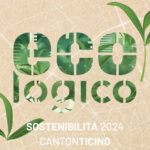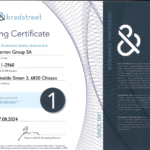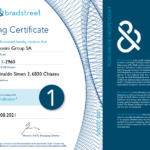INCENTIVE TAXES ON VOLATILE ORGANIC COMPOUNDS (VOCs)
When crossing the frontier, certain goods may be subject to one or more of the following taxes:
- Tax on volatile organic compounds, C.O.V. (V.O.C., volatile organic compounds);
- CO2 tax on fuels
for which the relevant requirements must be observed. In this article we will focus on VOCs.
VOCs, Volatile Organic Compounds, are all organic compounds that at a temperature of 20 ° C have a vapor pressure equal to or greater than 0.01 kPa. VOCs are also compounds that at the temperature of use have a volatility corresponding to the above definition (a vapour pressure equal to or greater than 0.01 kPa).
The VOCs of anthropic origin are molecules built by man, using some derivatives from oil refining, which allow, for example, the production of organic solvents widely used in the production of paints and inks, in surface treatments (washing, painting, printing), in leather coating and in the production of footwear, in the conversion of rubber, in the extraction of vegetable oils, in the field of medicinal chemistry, etc. Thus most of the solvents used in the various production sectors are considered VOCs.
The main sources of VOCs include coatings, in particular protective paints and coatings, adhesives and spray paints, solvents, cleaning products, coolants and dry cleaning products.
Due to costs, environmental risks and increasingly stringent regulations, the paint and coatings industries have, over time, adopted solutions that involve the use of water-based solvents also for the production of acrylic paints.
It should be specified that, at the time of importation, the following are exempt from the tax:
products in which the VOC content is not more than 3 % by mass;
ethyl alcohol (ethanol) intended for use as fuel and designated as such on the label, in containers with a maximum capacity of 10 litres;
oil intended for use exclusively as fuel, designated as such on the label, in retail containers;
liquid propane and butane and mixtures thereof, provided that they are odoured and used as fuels;
two-stroke engine oil packaged in retail containers and clearly designated as such on the label.
The incentive fee, equal to CHF 3.00 per kg of VOC, is levied upon importation.
Where the importer benefited from a permit under the voluntary commitment procedure, in which case to be indicated at the time of importation, the goods would temporarily not be subject to that charge.
Upon export, the tax on exported VOCs is refunded upon request to the Directorate General of Customs.
The consignment note, invoice or delivery note shall show for each product the quantity of VOCs in kilograms or the VOC content as a percentage by weight and the net mass.
Each topic covered here and the respective details can be deduced from the Electronic Customs Tariff (www.tares.ch).
The customs staff of SA Luciano Franzosini is gladly available for any clarification on the matter.








